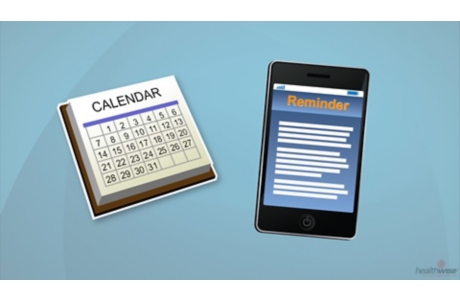COPD Action Plan
Topic Overview
It’s important that you know how to treat your COPD. This is true for everyday care and for when your symptoms get worse.
It’s also very important that your family, friends, and caregivers know what to do. If you can’t care for yourself in an emergency, others need to know how they can help you.
- Fill out this action plan with your doctor, and keep a copy where others can find it. Tape it to your fridge or post it in some other easy-to-see spot.
- If you use a metered-dose inhaler, keep these instructions handy so someone else will know how to use it if you need help.
- Know when to call your doctor.
Your COPD action plan
My name: ___________________________________
Address: ____________________________________
Phone: _____________________________________
Date plan was written: _________________________
Emergency contact information
My doctor’s or clinic’s name: _______________________
Address: ______________________________________
Phone: _______________________________________
Name of person to call in an emergency: _______________________________
Phone: ______________________________________
| If I have these symptoms: | I need this medicine (type and name): | I take this much, up to this maximum dose: |
|---|---|---|
|
|
|
|
|
|
|
|
|
|
|
|
|
|
|
|
|
|
When to call your doctor
COPD can cause serious problems with breathing, so it’s important to know when to get help. Quick treatment may help keep you out of the hospital.
Call 911 anytime you think you may need emergency care. For example, call if:
- You have severe trouble breathing.
Call your doctor now or seek immediate medical care if:
- You have new or worse trouble breathing.
- Your coughing or wheezing gets worse.
- You cough up dark brown or bloody mucus (sputum).
- You have a new or higher fever.
Watch closely for changes in your health, and be sure to contact your doctor if:
- You notice more mucus or a change in the color of your mucus.
- You need to use your antibiotic or steroid pills.
- You do not get better as expected.
Current as of: June 9, 2019
Author: Healthwise Staff
Medical Review:Martin J. Gabica MD – Family Medicine & Adam Husney MD – Family Medicine & Hasmeena Kathuria MD – Pulmonology, Critical Care Medicine, Sleep Medicine
This information does not replace the advice of a doctor. Healthwise, Incorporated, disclaims any warranty or liability for your use of this information. Your use of this information means that you agree to the Terms of Use. Learn how we develop our content.



